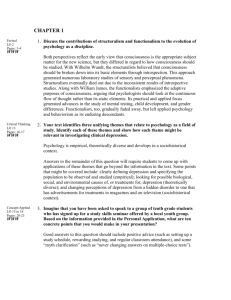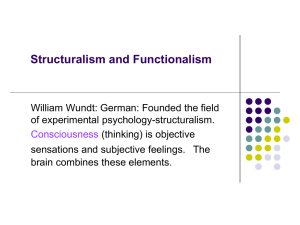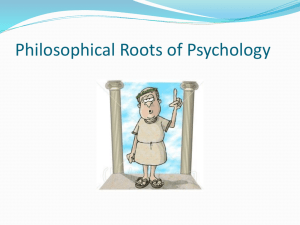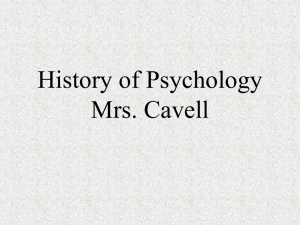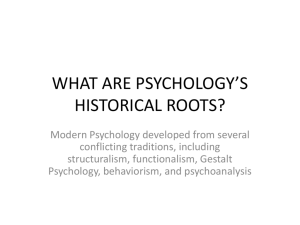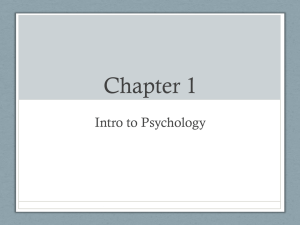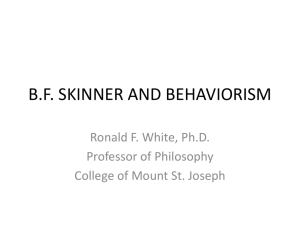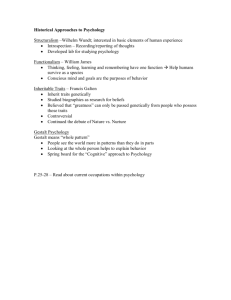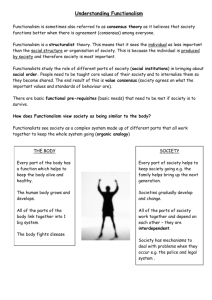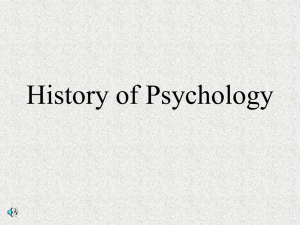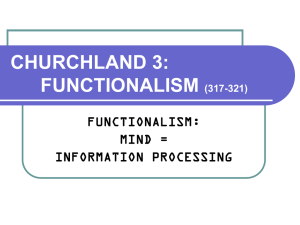History of Psychology
advertisement
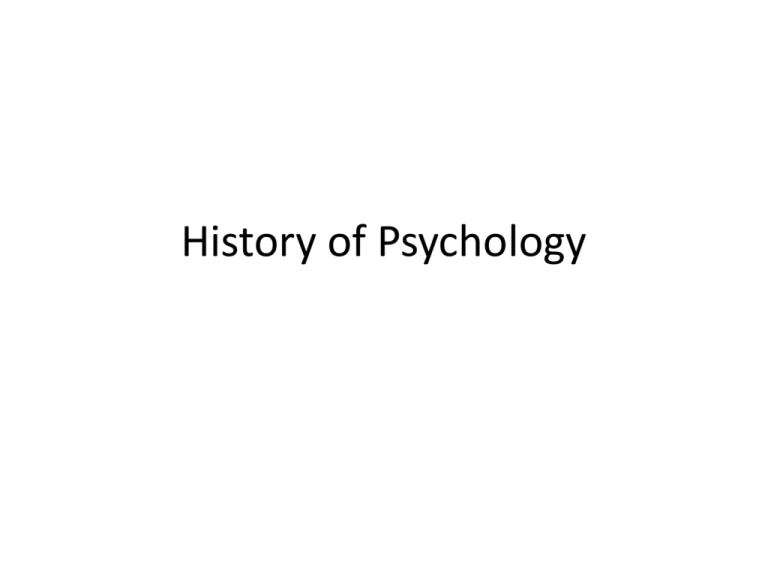
History of Psychology Roots in Greece • Plato once gave the idea to a student “Know Thyself” • Socrates said it is important to examine our thoughts and feelings. • Introspection- looking within • Anything wrong with your mental state was thought to be a punishment from the Gods • http://www.youtube.com/watch?v=qR3rT428i 8k The Middle Ages • Signs of agitation and confusion were signs of DEMONIC POSSESSION….BOO • Also, the same idea as the Greeks, this was thought of as a punishment for sins committed • Tests were ran to confirm or deny the presence of demons: – Water-Float Test Science Evolves • The Scientific revolution changed the world and how it viewed how things happened • In the 1800’s psychology developed into the ideas of human behavior based on EVIDENCE • Methods used were similar to those used in chemistry Wilhelm Wundt • He founded the field of psychology • This idea became known as structuralism (concerned with discovering the basic elements of conscious experience) • Consciousness was broken down into two separate categories • Objective sensations- sight sound taste • Subjective feelings- were thought to include emotional responses and mental image • Combine these and you get the consciousness William James • Thought that experience is a continuous stream of consciousness • Founder of the school of functionalism (how mental processes help organisms adapt to their environment. ) • Functionalism vs. Structuralism • Functionalism includes behavioral observation as well as introspection • Structuralisms ask what are the elements of a process • Functionalists ask what is the purpose of a process Adaptive practices John B. Watson • Rat in a maze example • Watson thought there was a severe problem with the school of functionalism….where does behavior fall in all of this? • Watson begins the school of behaviorism (the study of measurable behavior) B.F. Skinner • Skinner built on the idea of behaviorism, he felt that if a person were reinforced then they would be more likely to perform this action. • Pigeons and rats can learn complex behaviors if they are reinforced in the right way. • Can people be reinforced? Have you ever experienced this? Sigmund Freud • Possibly the most famous psychologist in history • Emphasized the importance of unconscious motives and internal conflicts that determine behavior • Interpret a slip of the tongue or a dream • What fills the mind of an individual is conflicting impulses, urges, and wishes. What is the Number One Factor that Effects Psychology? • • • • Biological-how we function Cognitive-thoughts determine behavior Humanistic-need for self fulfillment Psychoanalytic- influenced by unconscious feelings • Learning-the effect of experiences • Sociocultural- ethnicity, gender, socioeconomic standing
